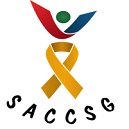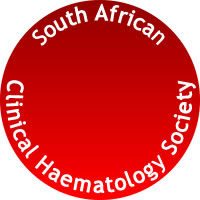Original Research
How registrar palliative care training affected palliative care integration in South African oncology
Submitted: 17 December 2023 | Published: 30 April 2024
About the author(s)
Stephanie R. Krause, Department of Family, Community and Emergency Care, Faculty of Health Sciences, University of Cape Town, Cape Town, South AfricaLiz Gwyther, Department of Family, Community and Emergency Care, Faculty of Health Sciences, University of Cape Town, Cape Town, South Africa
Jill Olivier, Department of Public Health, Faculty of Health Sciences, University of Cape Town, Cape Town, South Africa
Zainab Mohamed, Department of Radiation Oncology, Faculty of Health Sciences, University of Cape Town, Cape Town, South Africa
Abstract
Background: The current state of cancer care in Africa necessitates intervention to enhance accessible cancer prevention, treatment, rehabilitation, and integrated palliative care services. Achieving integration of palliative care within oncology requires both functional and normative integration. Decisive strategies are required to address misconceptions, lack of awareness, and comprehension regarding integrated palliative care (PC) services.
Aim: This research aims to describe how intermediate-level palliative training affected PC integration in Oncology at Groote Schuur Hospital in South Africa.
Setting: Groote Schuur Hospital is a tertiary, quaternary academic hospital with 975 beds. The oncology unit sees approximately 2800 new patients per year and qualifies 3–4 registrars annually.
Methods: This is a small qualitative study combining secondary thematic analyses of qualitative data from focus group discussions (n = 2) from a previous study, and new interviews (n = 3) and purposively sampled documents analysed through thematic analysis using NVIVO.
Results: Including PC education seems to enhance patient and family-centred care, contributing to improvements in the normative aspects of integration. Nevertheless, focussing solely on training registrars has proven insufficient in achieving crucial functional aspects of integration. The misalignment between policies, guidelines, and registrar education constrains effective integration of a PC approach. Consultants’ lack of training in palliative care poses difficulties in implementing comprehensive patient care. Clinical leadership in palliative care is provided from outside the oncology department which inhibits ‘functional integration’. Addressing these shortcomings is vital to successfully integrating palliative care within cancer care settings.
Conclusion: Training registrars in PC is undoubtedly necessary but insufficient. Clinical PC leadership within oncology in Africa is essential for integration.
Contribution: This article highlights the importance of PC in oncology and how training contributes to its integration. Furthermore, the role of clinical PC leadership within oncology in Africa is essential to this integration and will play a vital role in improving cancer care in Africa.
Keywords
Sustainable Development Goal
Metrics
Total abstract views: 839Total article views: 635



